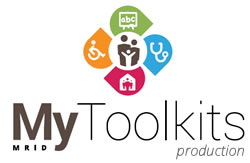The SchoolKit Clinic model offers a structure whereby families who have struggled to access the services and support they need to care for their child can be much better served by the health and education systems.
Opportunities are immediately apparent in the use of contemporary technologies and the potential introduction of SchoolKit Clinics into mainstream schools.
The use of both teleconferencing and videoconferencing to interact with regional and remote areas is being seen increasingly as a useful tool which can allow for both enhanced communication and also the up-skilling of rural staff in an efficient and effective way.
Teleconferencing with multiple participants can help with the establishment of SchoolKit Clinics, including general discussions regarding the aims of clinics, discussions about a particular child’s circumstances and discussion of appropriate clinic attendees beforehand.
It can also be used effectively to involve other specialists in a clinic as it is occurring, for example, a paediatrician in a regional setting teleconferencing with a psychiatrist for specific advice.
This can help fast-track the management progress, avoiding unnecessary delays.
Videoconferencing of clinics can also be helpful to a remote team. Where it is particularly expensive for a clinician to travel to a site to consult with one or a small number of young people and their families, their joining the clinic via videoconference can be effective and allow sharing of expertise.
This clearly requires a committed local team, able to coordinate local clinic participants, and follow-up contact as required.
While this setting has the potential to be more challenging from the perspective of being able to pick up on more subtle communications and create the right environment for everyone to feel at ease, it can be a resource- and cost-effective way of drawing upon the knowledge and experience of a broad range of professionals.




